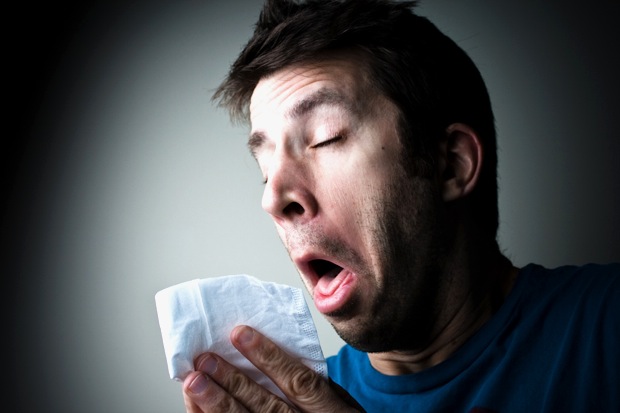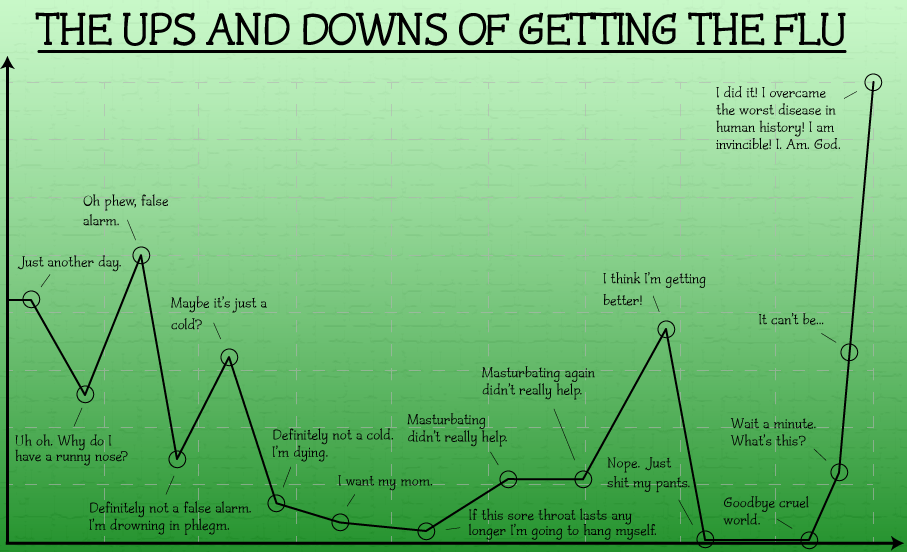If you’re starting to come down with something, here’s advice on when to push through and when to take a break.
It’s one of those hard-to-avoid bummers: The dreaded cold is going around your office and you can feel yourself becoming the next victim. Naturally, the first question is: Should I be working out with a cold? Especially when you’re training for a race, you don’t want to let a stuffy nose derail your plan, and fresh air is supposed to be good for you, right? Well, that really depends on what type of cold you have, and how you’re truly feeling.
Colds, or upper respiratory infections that are typically caused by a viral infection and are associated with symptoms such as a runny nose, sore throat, and cough are the result of the immune system being activated, explains Cordelia Carter, M.D., director of the Women’s Sports Medicine Center at NYU-Langone in New York.
“This ‘activation’ directs immune cells to migrate to the site of infection, to recruit and produce other cells and proteins to help fight the infection, and to prevent reinfection with the same bug in the future.” In other words, your body is using energy by supporting your immune system to fight off the cold. So, is working out with a cold okay, or should you give yourself a rest?
Working Out with a Cold
The amount of energy your body needs to fight an infection is dependent on the type of infection you’re trying to stave off and how severe it is. “If you’re sick, and your body is craving rest, chances are that you need it,” Carter says.
However many runners find that running with a head cold actually makes them feel better—at least temporarily. Though it’s not an exact science, running can help with some cold symptoms because exercise releases adrenaline also called epinephrine, which is a natural decongestant. “Running may decrease some of the congestion in the nose and sinuses, and you will still feel that natural endorphin high when you’re finished,” Carter says. This is why a run can clear out nasal passages. If you decide to run, keep the pace easy and stick to shorter distances.
Is Working Out Good for a Cold?
Every person, infection, and running or training situation are unique, and these decisions should be individualized, taking said factors into account, Carter advises. “It is generally okay to run with a cold, but it makes sense to scale back your typical duration, frequency, and intensity of it,” she says.
Carter adds that if you have a pre-existing condition that affects your lungs like asthma, and you know that running might exacerbate this while you’re fighting off a cold, then it’s a good time to consider a lower-intensity exercise. Try light yoga or a brisk walk.
On the other hand, if you’re feeling weak, faint, or short of breath, these factors contradict the need to exercise or run. “Not being able to sustain sufficient liquid intake to keep yourself adequately hydrated or to replace the energy used during an exercise session are also reasons to skip a workout,” Carter says. Symptoms such as high fevers, productive cough, muscle aches, decreased appetite, and associated gastrointestinal or GI issues aren’t typical of a common cold, and shouldn’t be ignored just to log miles. So, if you have a cough that means you should skip a few workouts and let your body rest.
[Smash your goals with a Runner’s World Training Plan, designed for any speed and any distance.]
When to Take a Rest Day
One easy way to remember this advice is the “neck rule.” Symptoms involving the neck and below—sore throat, cough, chest congestion, bronchial infections, body aches, chills, vomiting, diarrhea, or swollen glands—require time off from running. Symptoms above the neck—a runny nose, stuffiness, or sneezing—generally don’t require time off.
In the end, Carter recommends considering your goals and whether any risks of working out while you’re sick are worth the benefits you may reap from doing so. “Taking time off allows your body to focus on fighting infection rather than on expending energy on physical activity performance and recovery.” Choose the path that will lead to the fastest recovery, even if that means spending the day on the couch.
A true love for sports




Recent Comments